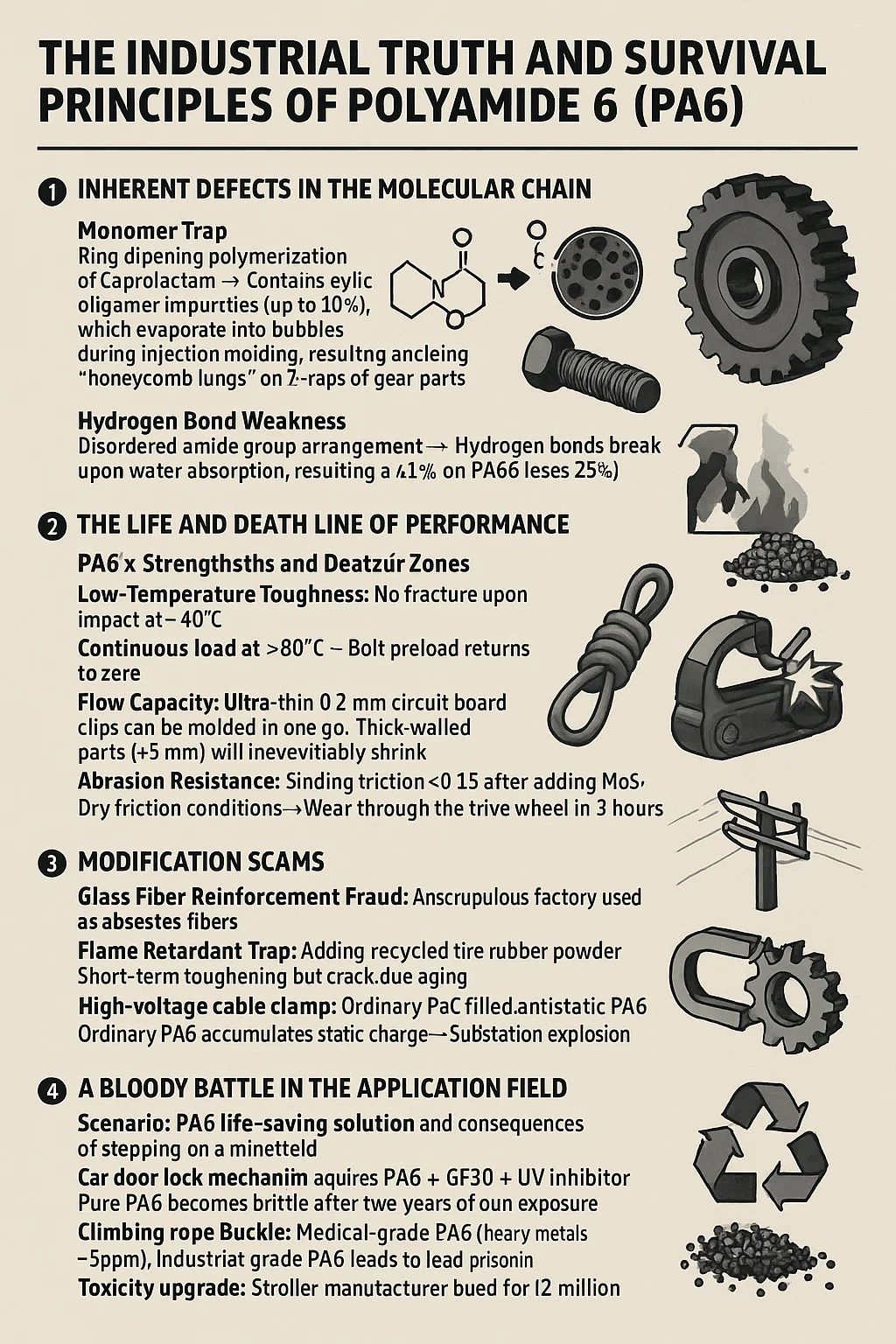
The Industrial Truth and Survival Principles of Polyamide 6 (PA6)
Content
1. Inherent Defects in the Molecular Chain
Monomer Trap: Ring-Opening Polymerization of Caprolactam → Contains cyclic oligomer impurities (up to 10%), which evaporate into bubbles during injection molding, resulting in "honeycomb lungs" on X-rays of gear parts.
Hydrogen Bond Weakness: Disordered amide group arrangement → Hydrogen bonds break upon water absorption, resulting in a 40% drop in strength (PA66 only loses 25%).
2. The Life and Death Line of Performance
| Property | PA6 Survival Zone | PA6 Death Zone |
|---|---|---|
| Low-Temperature Toughness | Withstands -40°C impacts (arctic gear survival) | Continuous load >80°C → fastener tension collapse |
| Flowability | Fills 0.2mm thin-wall snaps (electronics clips) | Thick sections (>5mm) → sink marks guaranteed |
| Wear Resistance | With MoS₂ additive: friction <0.15 (gears) | Dry sliding contact → shreds drive wheels in 3hrs |
3. Modification Scams
Glass Fiber Reinforcement Fraud: Unscrupulous factories use asbestos fibers as glass fiber → Thermal transition temperature is falsely labeled "70°C," filling the workshop with carcinogenic dust.
Flame Retardant Trap: Brominated flame-retardant PA6 releases toxic dioxin fumes when exposed to fire, leading to its EU ban for use in electronic housings (red phosphorus modification is used instead, doubling the cost).
Toughening Tricks: Adding recycled tire rubber powder → Short-term toughening, but after six months, the rubber powder ages and cracks due to aging.
4. A bloody battle in the application field
| Critical Scenario | Survival Formula | Catastrophic Failure |
|---|---|---|
| Auto Door Latches | PA6 + 30% Glass Fiber + UV Stabilizers | Virgin PA6 UV degradation → lock jams in crashes |
| Climbing Rope Carabiners | Medical-Grade PA6 (<5ppm heavy metals) | Industrial PA6 → lead leaching → blood poisoning |
| HVAC Cable Clamps | Carbon-Black Antistatic PA6 | Standard PA6 static buildup → substation explosion |
5. The deadly game of recycled materials
The three-reuse rule: First pass: 90% performance retention. Second pass: Impact strength halved. Third pass: Molecular chains break into slag → Gears break after 200 hours of operation
Toxicity upgrade: Flame retardants in recycled materials break down into polybrominated diphenyl ethers (strong carcinogens). A stroller manufacturer has been sued for $200 million.




 English
English 中文简体
中文简体 Español
Español русский
русский





